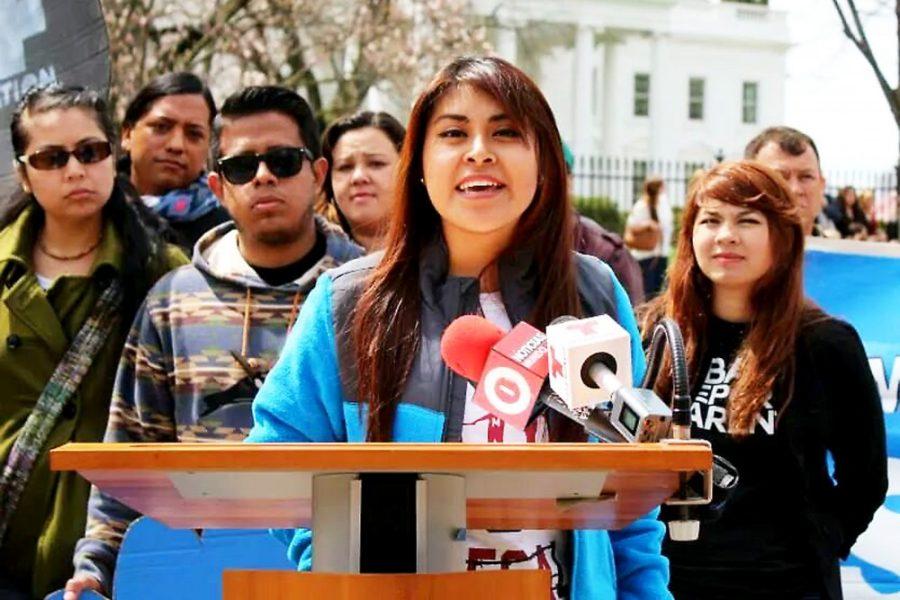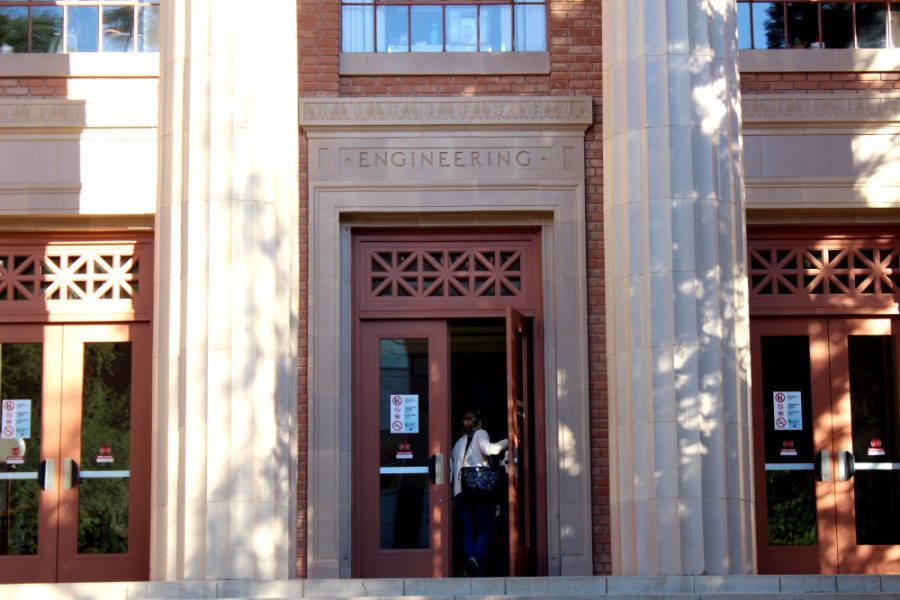When UA student Cynthia Diaz’s mother was placed in detention, it compelled her to undertake a hunger strike to fight for her mother’s freedom.
Diaz, a freshman studying Latin American studies and pre-public health, said her mother was deported in May 2011. She had immigrated without legal permission, and when she tried to return to the U.S. this past March during a movement called “Bring Them Home,” she was detained by the U.S. government.
Diaz said she has made many efforts to bring her mother home, the most recent of which involved her participation in a hunger strike outside of the White House in Washington, D.C. Starting last Tuesday, Diaz, along with two other people whose family members had been detained, went six days without eating to protest these detentions and to get the attention of President Barack Obama and the national government, according to Diaz.
“One of our main messages was that I have to put my body at risk … to get the attention to get my mother home,” Diaz said. “By day six, I was already fatigued and really weak.”
Diaz said that for the six days of the strike, she only had water and electrolytes but no real food. The hardest part, Diaz said, were the flashbacks to food she kept having.
“I also had a very sensitive nose, so I was smelling all kinds of food,” Diaz said.
Diaz said that she was able to speak with members of Congress and people from the White House and the Department of Homeland Security about her mother’s situation, as well as circulate a petition on Facebook and Twitter to gain community support.
Diaz said that she finally received some good news this past Tuesday: Her mother is going to be released from detention. It won’t be simple to bring her home, Diaz said, because there is still a lot of paperwork and work involved, but she is hoping to have everything done before Mother’s Day.
Monica Contreras, a sophomore studying Mexican-American studies who met Diaz during a class they shared last semester, said she has been inspired by Diaz’s leadership and strength.
“She’s so young,” Contreras said. “I’m only a year older than her, but it’s amazing how different our lives are. That could happen to anyone. The fact that she’s been so fearless and where she draws that strength from — it’s so inspiring because not everyone is willing to take that risk and do what she’s doing.”
Contreras said that together she and Diaz revived the M.E.Ch.A. club on campus. M.E.Ch.A., which stands for Movimiento Estudiantil Chican@ de Aztlán, is a national social justice club dedicated to advocating for and educating about the issues surrounding the Chicano and Latino communities. Diaz has been a huge motivator in encouraging members to tell their stories, Contreras added.
“She’s really amazing in the way she tells her story,” Contreras said. “She’s so well spoken. She really portrays that message that we all are human beings and we all want what everybody else wants; we all want to be with our families.”
Roberto Rodríguez, an assistant professor in the department of Mexican-American studies, said that he had Diaz in a class last semester and has kept up with her mother’s story and her involvement this past week in Washington, D.C.
“[Diaz] is beyond brilliant,” Rodríguez said. “She is courageous and fearless. … I don’t think I’ve ever seen anybody as fearless as her. Just a handful of people change history, and I think [Diaz] is proof of that.”









